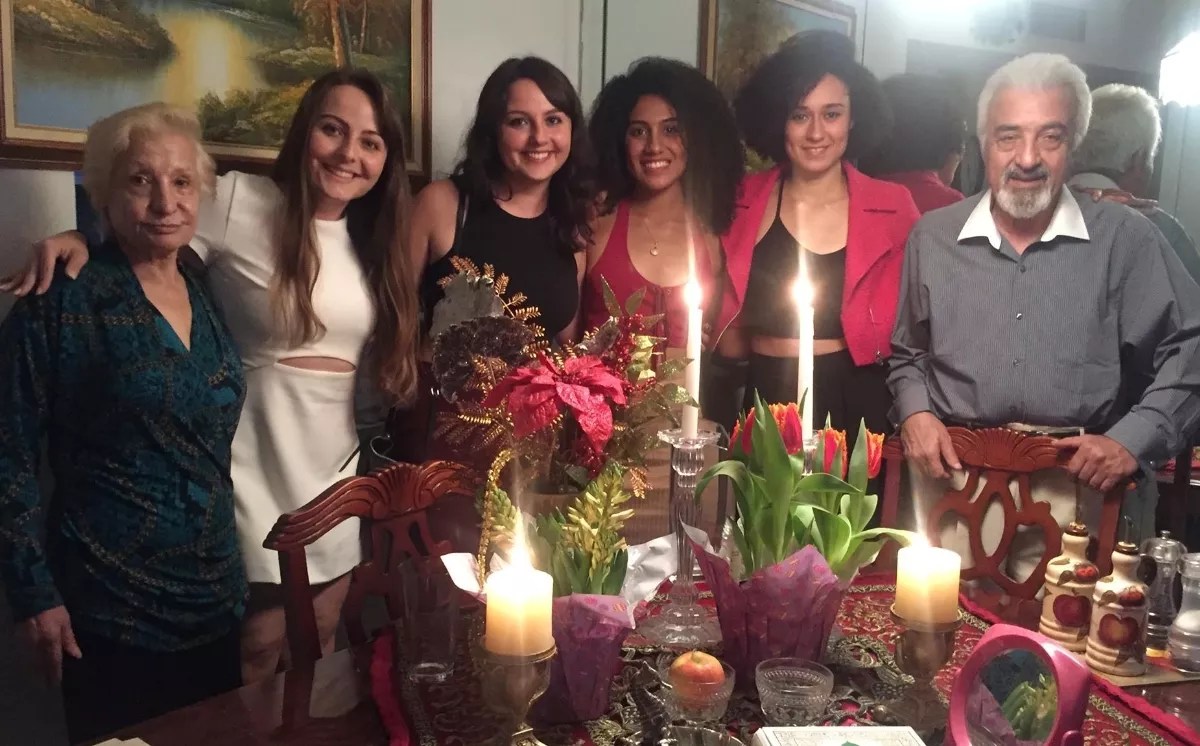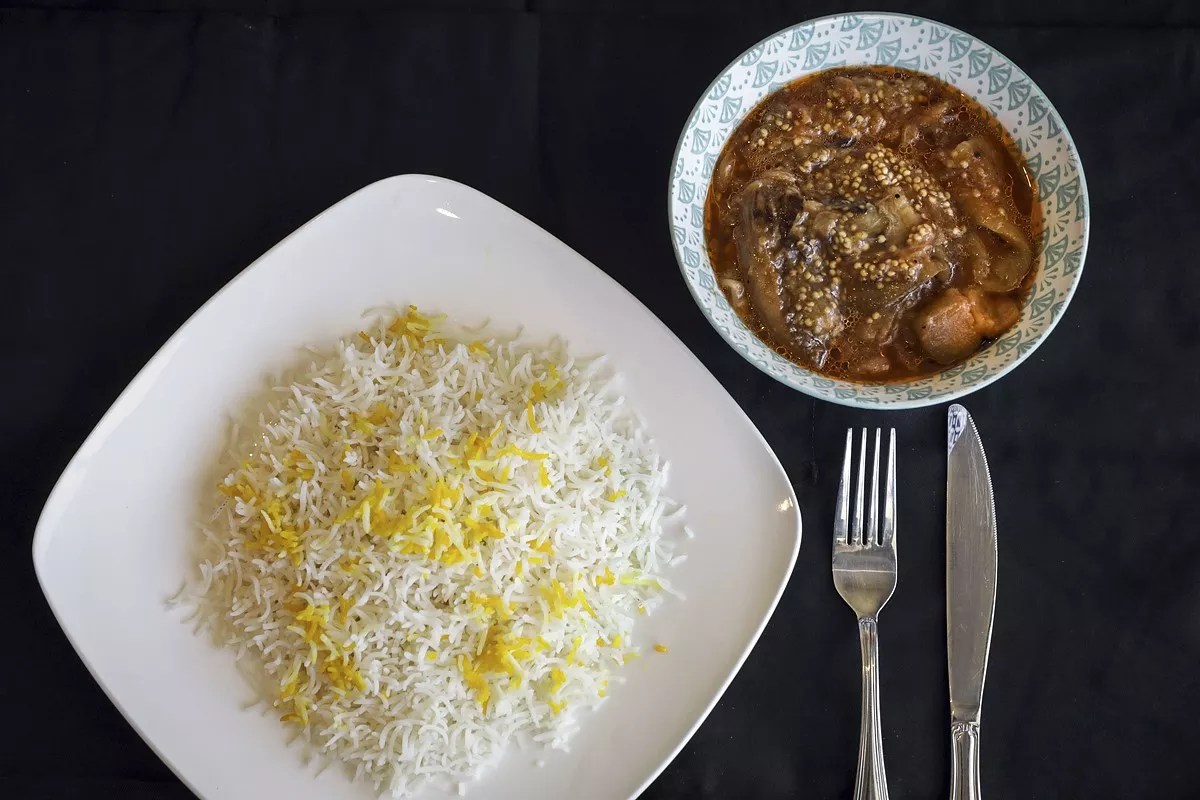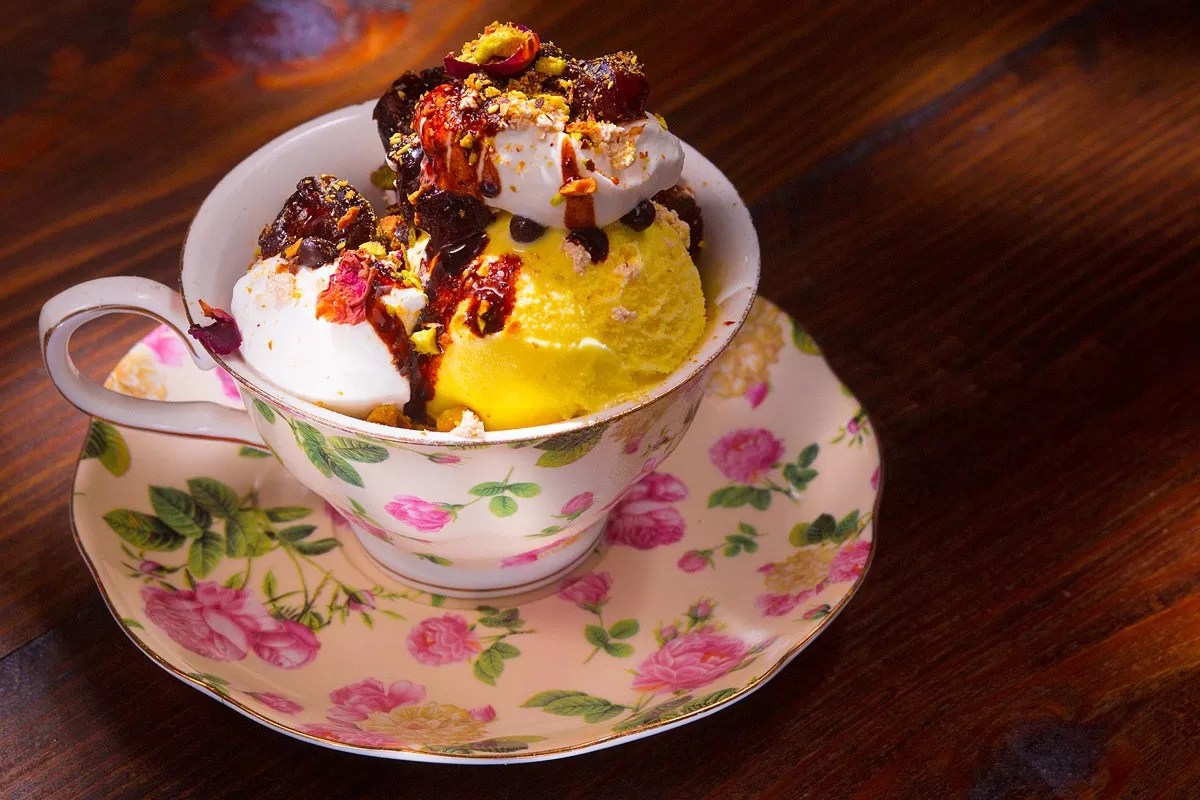
Photo by Jess Swanson

Audio By Carbonatix
Every March, my mother would buy a bag of lentils from the supermarket, but instead of cooking them, she would soak them in a damp paper towel until they sprouted.
On Nowruz, the Persian new year, which takes place the first day of spring, we would present the lentil sprouts, called sabzeh, in an elaborate spread with six other symbolic dishes on the table beginning with the Farsi letter “s”: garlic, apples, sumac berries, vinegar, a sweet wheat paste called samanu, and a small dried fruit called senjed. There was also a mirror, painted eggs, a goldfish in a bowl of water, and a few coins. Each item is meant to bring health, wealth, and prosperity, and the tradition dates back centuries to ancient, pre-Islamic Iran.
Growing up in Tehran, my mom had always planned to one day name her daughter Shaghayegh, not Jessica. But the 1979 revolution stopped her plans, and she immigrated to America. Still, she was determined to keep her Persian traditions alive in Miami, a city known for its immigrants – just not Iranian ones. (Since 1935, Persia has been known as Iran, but many members of the country’s diaspora still prefer to be referred to as Persian.)
In addition to organizing lavish Nowruz celebrations, my mother would mark birthdays and holidays by taking the family to the handful of family-owned Persian restaurants she discovered in nondescript shopping plazas across South Florida. These meals became not only a medium to taste exotic-sounding dishes with imported ingredients but also a savory way to connect her American-born children to her culture. Because I can’t speak Farsi, food has become the strongest tie to my Iranian heritage.

Khoresh bademjan at Rumi Persian Grill
Photo by CandaceWest.com
When my mom moved to Miami in the late ’80s, Shiraz Bistro & Market was the only Persian restaurant she could go to when homesick. It’s a quaint Middle Eastern grocery store and café in a shopping plaza next to a Chinese restaurant near Dadeland. It was run by a bubbly Persian woman, Homa Khakpour, who for the longest time I thought was related to us because I had never met a Persian person in South Florida who wasn’t. My entire family would sit at one of the lacquered wooden tables facing the large landscape portraits of southern Iran. My grandparents would recite family anecdotes from my mom’s childhood, while my sister and I would practice words we heard around us in Farsi: ghormeh sabzi was the tangy stew made with herbs or beef and beans, tahdig was the burnt crunchy rice, and kabab koobideh were the seasoned meat skewers. We would chew on the exotic words along with our stews and watch our grandparents smile at our pronunciation.
A few years ago, Homa sold Shiraz (it’s still a Persian/Mediterranean eatery) and opened a new one, Rumi Persian Grill, in nearby Pinecrest. The space is larger yet still adorned with classic Iranian paintings and rugs. The menu is mostly the same as the previous one. A typical meal begins with a modest portion of mast-o khiar, a chilled cucumber herb yogurt, followed by a stew such as khoresh bademjan, made with roasted eggplant and tomatoes, and heaping mounds of long-grain rice seasoned with saffron. The meat skewers known as kabob koobideh always came next as the main before the meal ended with a steaming round of cardamom-spiked Earl Grey tea served in glass cups.
Because I can’t speak Farsi, food has become the strongest tie to my Iranian heritage.
Whenever a family member visits from Iran or out of town, my two dozen or so Persian relatives in South Florida congregate at Kababi Cafe by Kuluck, an opulent Persian buffet with live music and belly-dancing nestled in a shopping center in Sunrise. We ask our servers for rounds of grilled tomatoes and white onions, traditionally cut to eat with every bite of long-grain rice. Sometimes, between rounds of meat skewers and plentiful helpings of beef-and-kidney-bean ghormeh sabzi and the fragrant chicken-and-pomegranate stew fesenjan, belly dancers perform. If the music is loud enough, we all twist in tune in our seats and raise our arms in a dance move that resembles unscrewing two light bulbs at once.
Recently, I brought our family’s Iranian dining tradition full circle by inviting my mother to try Fooq’s, a cozy Mediterranean spot in downtown Miami whose menu is inspired by the owner’s Persian-French heritage. As we sit, my mom somewhat suspiciously eyes the space, with its chic bohemian interior and lack of ornate Persian rugs. But as soon as she opens the menu, she shrieks with excitement: “They have ghormeh sabzi!”

Fooq’s Persian sundae
Photo by billwisserphoto.com
As our server shuttles a sabzi salad with fresh mint and pomegranates to our table, my mom stage-whispers that she’s convinced the waitress is Persian, a family habit when meeting anyone vaguely Mediterranean whom my relatives like. We’ve ordered heaping plates of koobideh, ghormeh sabzi, and a vegan khoresh made with split peas and roasted eggplant. My mother pauses and taps the scorched tahdig with her fork. She nods in approval as she takes the first bite before we dive in. She notes that she’ll incorporate the pomegranate seeds used as a garnish throughout the meal in her own home cooking – a compliment of the highest degree.
It’s the first time my mother and I have eaten at a Persian restaurant without other family members, and inevitably, too much food winds up on the table. When the pink teacup holding a Persian sundae arrives at the table, we look a little queasy yet polish off every scoop of the rosewater, saffron, and pistachio gelato. Before we go, executive chef Clark Bowen, a jovial man with more than 20 years of experience, including a recent stint at the helm of Boulud Sud, stops by to ask what we thought.
For a moment, the table is silent, waiting for a review by this brutally honest woman who has eaten authentic versions of this food her whole life. Suddenly, her eyes light up. “I need to bring my family here!” Chef Clark and I let out a synchronized sigh of relief.
As of publication, the restaurants mentioned in this story are open for takeout and/or delivery, but please call ahead before heading to any of them.
Fooq’s. 1035 N. Miami Ave., Miami; 786-536-2749; fooqsmiami.com.
Kababi Cafe by Kuluck. 3828 N. University Dr., Sunrise; 954-909-4133; kababicafe.com.
Rumi Persian Grill. 12257 S. Dixie Hwy., Pinecrest; 305-252-2222; rumipersiangrill.com.
Shiraz Bistro & Market. 9630 SW 77th Ave., Miami; 305-273-8888; shirazbistro.com.